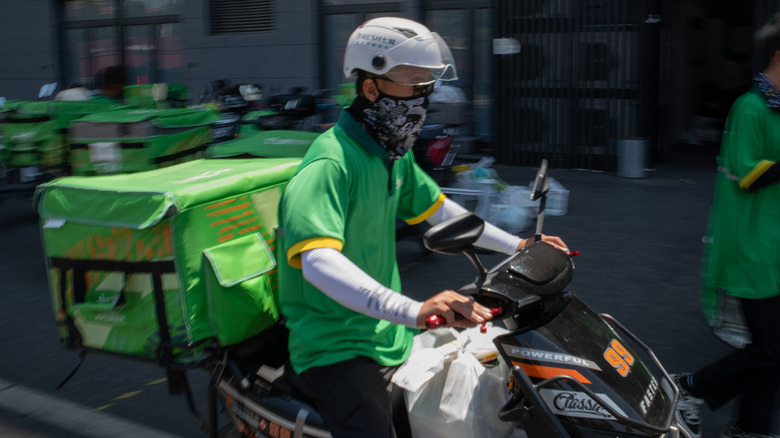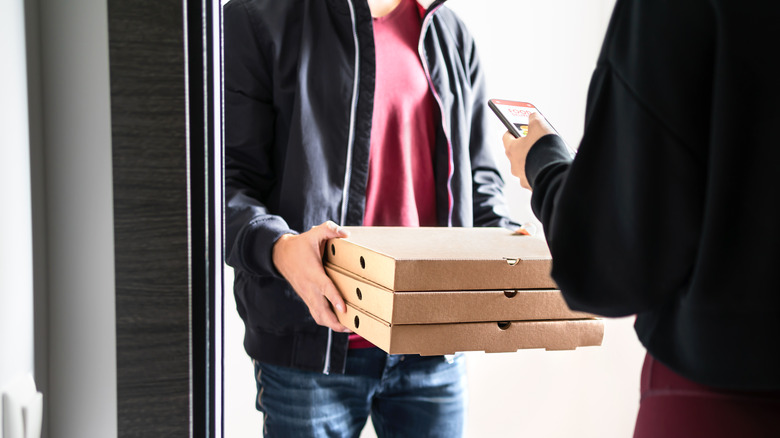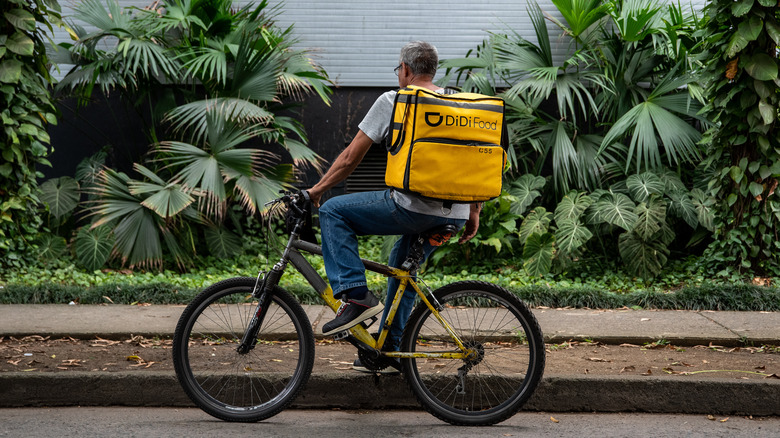The First Minimum Wage For Food Delivery Workers Set To Take Effect In NYC
It's common knowledge that food delivery workers are the backbone of New York City's food culture. They're the quiet soldiers in our battle to live on another day, powered by 2 a.m. pizza or a Tuesday night chicken tikka masala.
However, food delivery workers have long lacked the job security that other essential workers have. The current average hourly wage for a food delivery worker is $7.09 — less than half the $15 standard minimum wage in New York City. This is about to change, thanks to a new minimum wage for food delivery workers in NYC.
Coming thanks to a collaboration between the New York City Department of Consumer and Worker Protection (DCWP), NYC Mayor Eric Adams, and advocacy groups like Los Deliveristas Unidos, the first phase of the new minimum wage kicks in on July 12, 2023, at $17.96 per hour. By April 1, 2025, the second increase will go into effect, up to $19.96 per hour.
Food delivery workers need protection
This is the first minimum wage safeguard to be established for food delivery workers in the country, hopefully setting a precedent for other major cities that rely heavily on these kinds of workers. It will apply to all food delivery workers employed by food delivery apps like GrubHub, DoorDash, and UberEats, which have faced backlash in recent years for predatory payment policies, with many delivery workers relying on tips to subsidize worker wages. With tips being added in the app, it's hard to know if your delivery worker is getting the whole thing, or even part.
"They should not be delivering food to your household, if they can't put food on the plate in their household," New York City Mayor Eric Adams said of the estimated 60,000 delivery workers affected by this decision, per Gothamist.
One problem with compensating delivery workers fairly is that they have traditionally earned money on a per-delivery basis, despite nearly half of their time being spent on call, waiting for the next order to deliver. The new law would cover both time spent in transit making deliveries, as well as time spent on call.
How food service workers get paid
Any kind of work in the gig economy can be financially fickle, with no health benefits, PTO, worker's comp, or other protections. However, delivery workers are particularly vulnerable because they are out in the city (typically on bikes) risking their safety on slippery streets in bad weather, dodging aggressive drivers, and exposing themselves to illness or pollution. Food delivery workers also don't have the same amount of face time with customers as restaurant servers and bartenders do, giving them less of an opportunity to make a personal connection that could result in a larger tip.
Tipped food service workers in NYC restaurants earned their own minimum wage bump at the end of 2021 — with a $10 cash wage requirement supplemented by a $5 "tip credit" — in order to match the city's standard $15/hour minimum wage. That being said, the federal minimum wage for tipped workers is still a laughably low $2.13 per hour.


